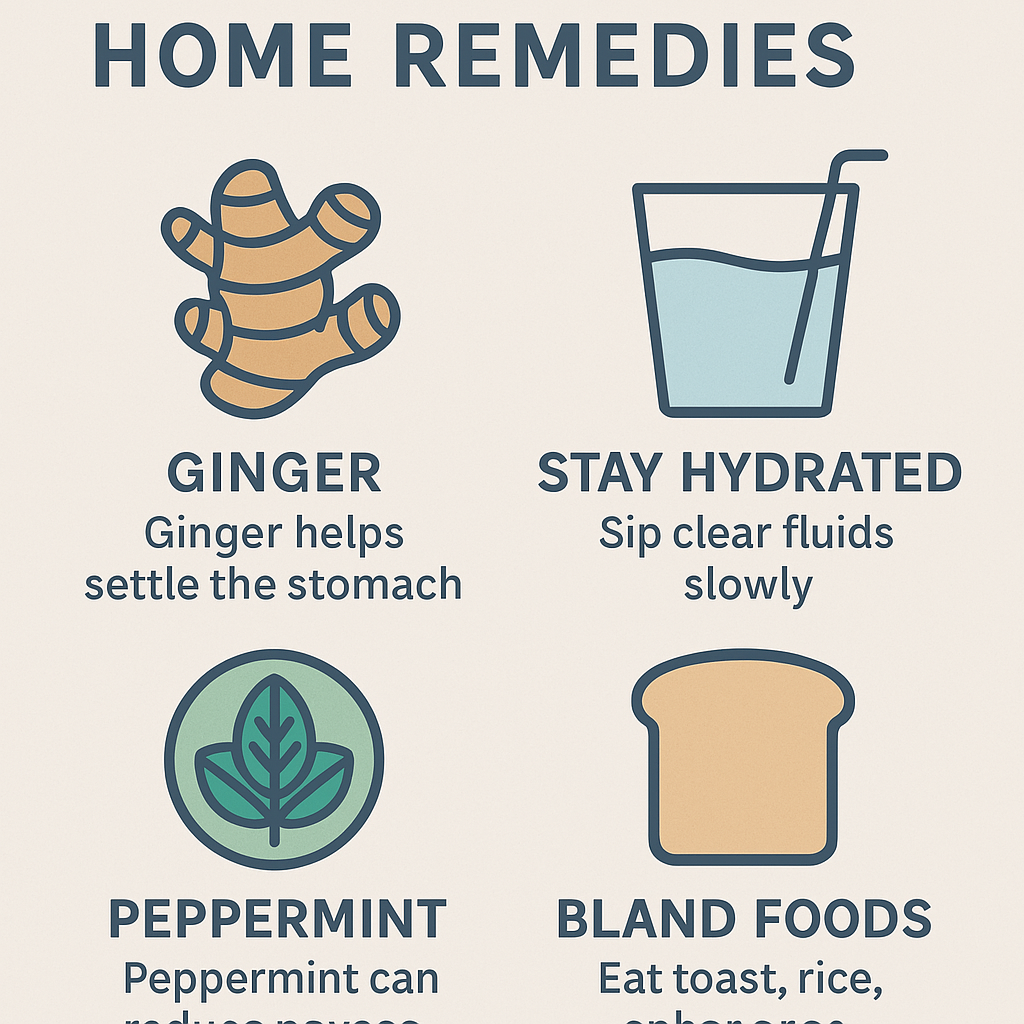What causes vomiting can range from mild to serious health issues. Common triggers include food poisoning, stomach infections, motion sickness, and pregnancy. Overeating, consuming alcohol, or certain medications may also lead to vomiting. Infections like the flu or gastroenteritis irritate the stomach lining, prompting the body to expel contents. Emotional stress, anxiety, or migraines can be non-physical causes. In more severe cases, conditions like appendicitis, concussions, or kidney problems may be involved. Identifying what causes vomiting helps determine the right treatment. Persistent or severe vomiting should always be evaluated by a healthcare provider to rule out serious underlying conditions.

What Causes Vomiting ?
It is a common symptom caused by various conditions, ranging from minor issues like indigestion to serious medical problems. Understanding the causes and knowing how to manage and prevent vomiting can help you feel better faster.
Common Causes of Vomiting
Vomiting can result from many factors, including:
1. Gastrointestinal Causes
-
Food Poisoning – Consuming contaminated food or water (bacteria, viruses, or parasites like Salmonella or E. coli).
-
Stomach Flu (Gastroenteritis) – Viral infections (norovirus, rotavirus) inflame the stomach and intestines.
-
Indigestion or Overeating – Eating too much, too fast, or consuming fatty/spicy foods.
-
GERD (Acid Reflux) – Stomach acid flowing back into the esophagus.
-
Appendicitis – Severe pain in the lower right abdomen, often requiring emergency care.
-
Intestinal Blockage – A serious condition preventing food from passing through the intestines.
2. Motion Sickness and Vertigo
-
Travel-related nausea (car, boat, or plane rides).
-
Inner ear problems (labyrinthitis, Meniere’s disease)
3. Pregnancy (Morning Sickness)
-
Hormonal changes, especially in the first trimester.
4. Medications and Treatments
-
Chemotherapy, antibiotics, painkillers (opioids), or anesthesia.
-
Overdosing on medications (e.g., iron supplements).
5. Neurological Causes
-
Migraines, concussions, brain tumors, or meningitis.
6. Infections
-
Flu, COVID-19, urinary tract infections (UTIs), or hepatitis.
7. Psychological Factors
-
Anxiety, stress, or bulimia nervosa (eating disorder).
8. Chronic Illnesses
-
Diabetes (ketoacidosis), kidney disease, or liver disease.
How to Manage Vomiting at Home
If vomiting is mild and not due to a serious condition, try these remedies:
1. Stay Hydrated
-
Sip small amounts of clear fluids (water, oral rehydration solutions, coconut water, herbal tea).

-
Avoid caffeine, alcohol, and sugary drinks (they worsen dehydration).
2. Follow the BRAT Diet
-
Eat bland foods like Bananas, Rice, Applesauce, and Toast.
-
Gradually add crackers, boiled potatoes, and oatmeal as nausea subsides.
3. Rest
-
Lie down in a comfortable position, but avoid lying flat (prop your head up to prevent reflux).
4. Use Natural Remedies
-
Ginger (tea, candies, or supplements) helps reduce nausea.

-
Peppermint (tea or aromatherapy) can soothe the stomach.
-
Acupressure (pressing the P6 point on the wrist) may relieve nausea.
5. Avoid Triggers
-
Strong smells, spicy/greasy foods, and large meals.
6. Over-the-Counter (OTC) Medications
-
Antiemetics (like Dramamine for motion sickness).
-
Antacids (if vomiting is due to acid reflux).
When to Seek Medical Help
Seek emergency care if vomiting is accompanied by:
-
Severe abdominal pain (possible appendicitis or blockage).
-
Blood or coffee-ground-like vomit (sign of internal bleeding).
-
High fever, stiff neck, or severe headache (meningitis risk).
-
Signs of dehydration (dry mouth, dizziness, dark urine, no urination for 8+ hours).
-
Vomiting lasting more than 24 hours (especially in children or elderly).
-
Head injury or suspected poisoning.

Preventing Vomiting
1. Practice Good Hygiene
-
Wash hands before eating and after using the bathroom to prevent infections.
2. Eat Mindfully
-
Avoid overeating, chew slowly, and avoid lying down right after meals.
3. Manage Motion Sickness
-
Sit where there’s least movement (front seat of a car, over airplane wings).
-
Take OTC motion sickness meds before traveling.
4. Stay Hydrated
-
Drink water throughout the day, especially in hot weather or when sick.
5. Reduce Stress and Anxiety
-
Practice deep breathing, meditation, or yoga.
6. Avoid Food Triggers
-
Be cautious with dairy, spicy, or high-fat foods if you have a sensitive stomach.
Conclusion
Vomiting is usually temporary and resolves with rest and hydration. By identifying the cause and following these management tips, you can recover faster and prevent future episodes.
